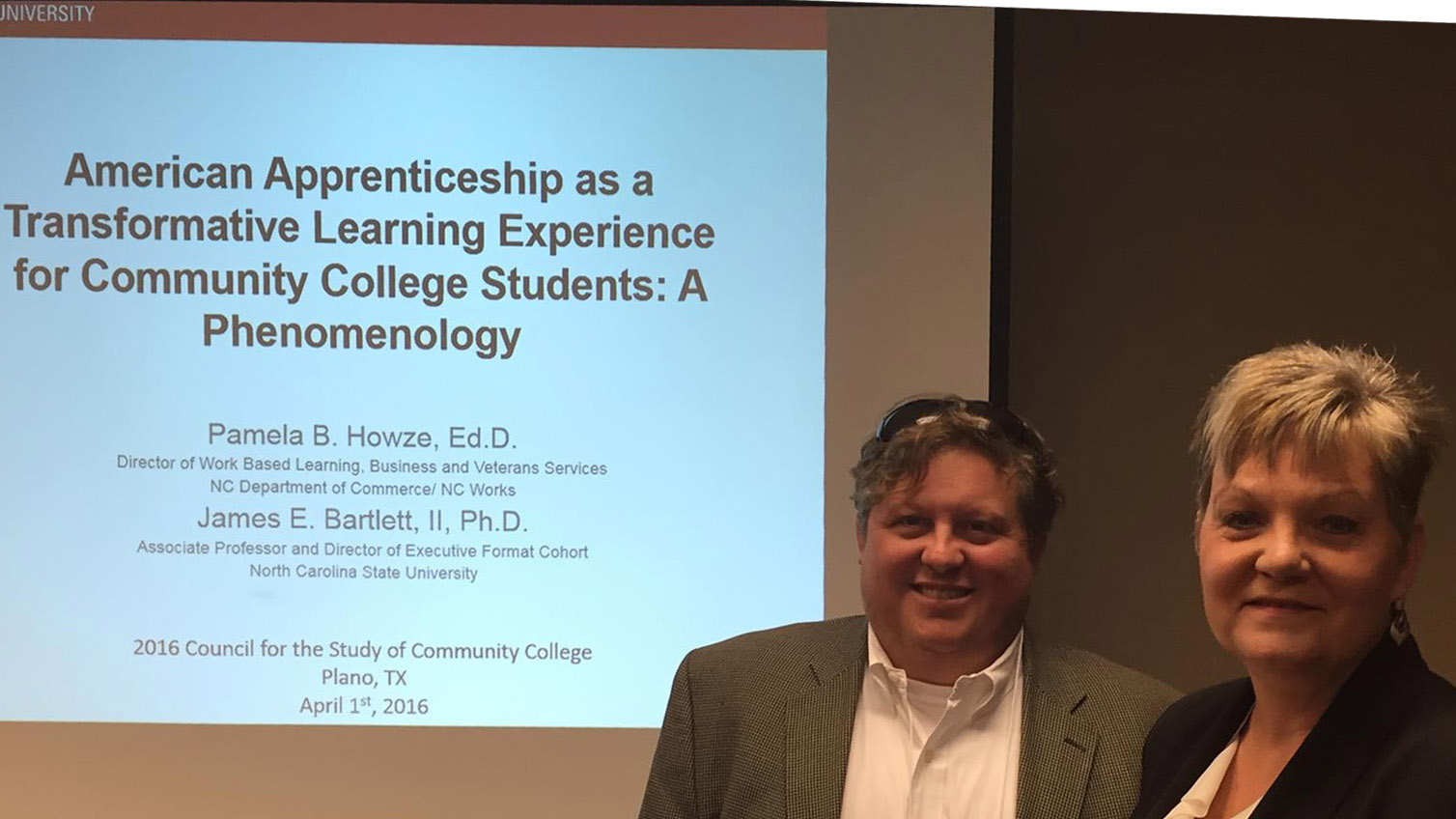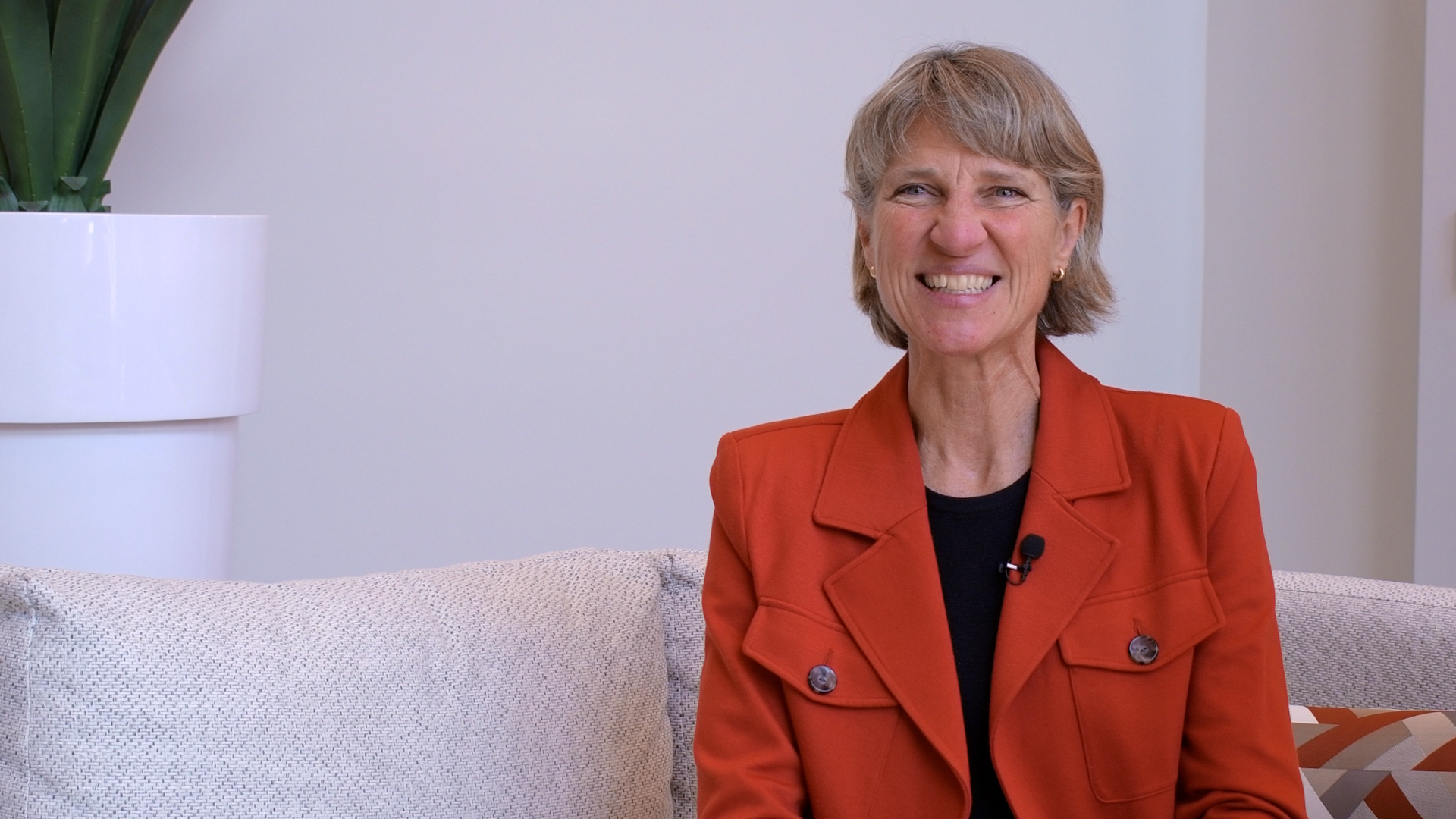Spotlight on Associate Professor James Bartlett

James Bartlett works to ensure the academic and professional success of College of Education students working toward becoming community college executives. Bartlett, an associate professor in the Department of Educational Leadership, Policy and Human Development, serves as the director of the department’s Charlotte cohort for adult and community college education.
Bartlett recently received a Graduate School Outstanding Graduate Faculty Mentor Award for his efforts. We sat down with Bartlett to talk about the importance of mentorship in doctoral education, and how the College of Education is shaping tomorrow’s community college leaders.
Why is mentorship important in preparing outstanding adult and community college education scholar-leaders?
Mentorship has been a key component to the development of outstanding executive leaders, future faculty and research professionals. In my presidential address to the Association of Career and Technical Education Research, I highlighted that to ensure that the next generation of leaders has the support needed to thrive, we need to reach out and provide mentoring, coaching and other support. Working closely with graduate students can provide an apprenticeship-like model to provide students with the best experiences to prepare them for their future roles. This idea has been in the culture of NC State for a number of years.
NC State has a long history of mentorship and internship programs connected to the successful development of executive leaders. In an interview with Ed Boone in 2011, it was described that dating back to the start of the program, mentorship was an integral part of the program and he fully expected that department faculty members would work closely with each student to ensure their success and growth. This culture of strongly supporting students is one that has been embraced in the education doctorate offered in Charlotte, in which I have served as the director since arriving at NC State. This doctoral program embraces the principals from the Carnegie Project on the Education Doctorate (CPED) and is serving those wanting to be scholar-practitioners.
You lead the college’s doctoral cohort in adult and community college education in Charlotte. What have you learned from the program so far, and where do you hope to take the program in the future?
Since leading the doctoral cohort program in Charlotte, more than 80 percent of the students that complete their coursework finish their dissertations. The completion rate for the program has been higher than the national average. What I have learned from working with this program is that it is critical for students to identify a chair who is a mentor and coach that takes ownership of student success.
Additionally, finding a chair who is skilled in research methods (both quantitative and qualitative) and understands research from a practitioner perspective is critical to leading students through the research process to complete an educational doctorate. Most recently, NC State has responded to the need for to develop even more leaders for those in community colleges, workforce development, and career and technical education positions. In the future, I could see the program further strengthening the relationships with the community colleges working with our advisory board, as well as others, to ensure the correct skills are being developed in our leadership program.
In terms of content, I foresee a continued relationship with organizations like the Aspen Institute to integrate content that is relevant for community college leaders to ensure community college student success in learning, completion, transfer, equity and labor market outcomes. In terms of research methods, we are currently working to redesign the research sequence to integrate innovative perspectives such as design thinking and improvement science to ensure leaders are asking the right questions and able to use data to make decisions and improvements.
Additionally, I see the program working to make improvement that continue the alignment with the CPED principles for the education doctorate. It is our aspiration that these changes will not only better position NC State to be a leader in the development of community college executive leaders in North Carolina, but will make NC State the desired school for graduate education nationally for those looking to serve as executive leaders in community colleges across the country.
You recently received a Graduate School Outstanding Graduate Faculty Mentor Award, which is based on nominations from your graduate students. What does this honor mean to you?
Current and past students nominating me for a mentor award is a signal of success in the most valuable role I play as a professor working with graduate students. With doctoral students, mentoring is a form of teaching that integrates many roles of the faculty member in higher education. Mentoring students in research allows students to learn how to conduct research projects with hands-on experiences and allows them to learn about the academic processes used to disseminate research.
While there are a number of measures in higher education of student success, such as learning and completion, I believe that we often do not take students to the finish line and work with them to meet their desired labor market needs. Mentoring students once they leave the program to ensure they obtain the leadership positions they desired is another key to mentoring. Having these types of students nominate me is highly rewarding and shows that work in these areas is valued by the most important people served by our programs at NC State, the students. This type of recognition from the students that work closest with you is more meaningful than another publication, research award or grant.
What are some of the biggest issues facing the field of adult and community college education?
While there are many challenges that are facing the field of community college education, one that NC State has decided to address is the need for the development of executive leaders. To meet this challenge, NC State has partnered with the Aspen Institute with funding from the Belk Endowment to redesign the educational doctorate to meet the needs of the field. In this role of developing leaders, it is important to understand the leader must provide direction with the purpose of improving student success. I think a big issue in the field is how we define and measure student success so that it can be improved.
Lastly, I think one of the biggest issues facing the community college is the perception that community colleges are only second-chance schools that are not viewed as a first choice for students. This an issue because there are many students that would be best served at community colleges, and the schools have the potential to provide students with highly successful outcomes, but are negatively viewed as higher education options. Truthfully, these schools can be the best and most affordable pathways to jobs and transfer opportunities.
How is the College of Education leading the way in finding higher education solutions?
I am currently serving at a co-principal investigator on a grant called “Envisioning Excellence for Community College Leadership.” This grant from the Belk Endowment has provided funding to redesign doctoral education to ensure future community college presidents are being provided the skills to lead the next generation of community colleges. This redesign has not only decreased students’ time to graduation, it has also looked at re-visioning the dissertation to solve problems in practice.
This redesign has not only integrated new content into the curriculum, but has also formed partnerships with executive leaders for the delivery of some courses. This redesign includes opportunities for students to interact with the co-creators and executive producers of a film like No Greater Odds, a documentary that tells the stories of five community college students from the College of Southern Nevada, who discuss varying views of student success. The redesign also provides students with opportunities to work with community college presidents like Ken Ender who will be co-teaching our doctoral course on change. These are just a few ways that the College of Education leads the way in finding innovative ways to develop executive leaders.
Learn more about how the College of Education helps working professionals become scholar leaders through our doctoral cohort in Adult and Community College Education.
- Categories:


